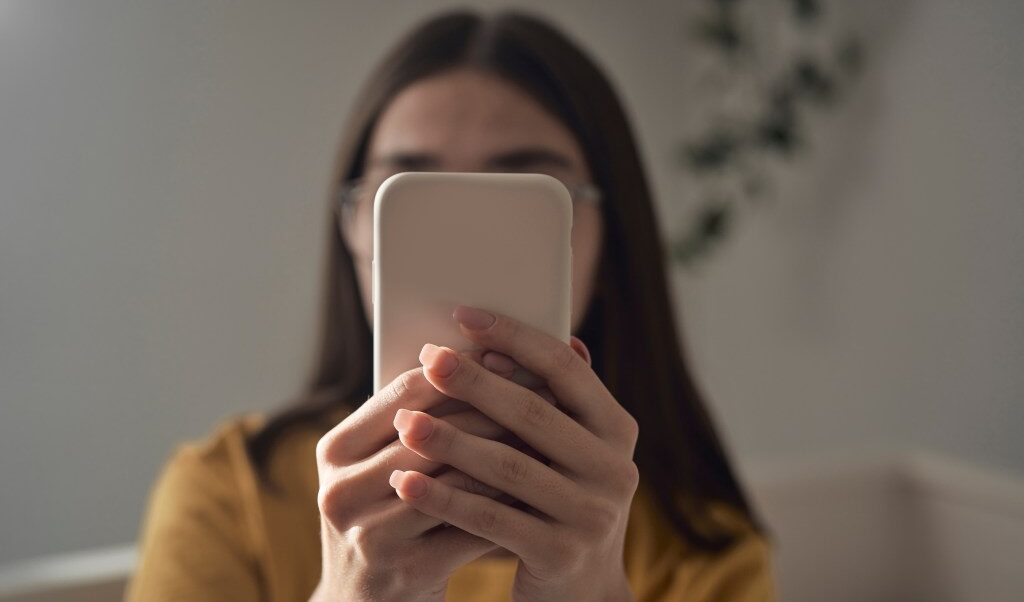If you purchase an independently reviewed product or service through a link on our website, SheKnows may receive an affiliate commission.
No one likes to be surprised by their period, but there’s something especially terrible about it when you’re a teen. It’s that familiar sinking feeling: realizing it in the middle of class, calculating how to make it to the bathroom as quickly as possible, trying to remember whether you still have a leftover pad in your backpack from last month, hoping above all that you don’t have to spend the rest of the school day bleeding through your jeans. Sorry to bring back any unpleasant memories, but we’ve all been there — and, probably, learned from the experience. The lessons? Make sure to keep your period kit stocked at all times, and start tracking that cycle — whether by hand or on a handy period-tracking app — so it doesn’t sneak up on you again.
Dr. Somi Javaid, a board-certified OB/GYN and founder of HerMD, says that anyone who menstruates should ideally be tracking their cycle. That’s because, during your menstrual years, “presence or absence or changes in your menstrual cycle can be another vital sign indicative of what’s going on with your general health,” she tells SheKnows. For teens, it’s especially important to get into the habit.
Why Should Teens Track Their Periods?
“For the first few years, as your hormones are maturing… cycles aren’t always predictable, and so that leaves teens unprepared,” Dr. Javaid explains. That might mean they’re caught without a period product while at school, at a sports game, or traveling. It might also mean that they’re confused when new PMS symptoms come on. “They already have unpredictable moods because of being a teenager,” Dr. Javaid points out. “Sometimes they’re not aware that they’re moody or angry or depressed… or they are very self-conscious about their [breakouts] or bloating… and it’s really due to PMS.” Knowing that these symptoms are actually due to their cycle can be reassuring.
Plus, picking up on their symptoms is the first step to treating or even preventing them, Dr. Javaid adds. “You can go talk to your provider about options to treat the PMS,” she explains. “Knowledge is power, but it also arms them with the capability, then, to go in and make an informed decision if they want treatment for some of their concerns,” whether that means grabbing some ibuprofen before a day they usually get cramps, or taking preemptive migraine medication if they’re a menstrual migraine sufferer.
How Teens Should Track Their Period
There’s no right medium for tracking a menstrual cycle, Dr. Javaid says — it’s whatever fits into your teen’s life the best. “Some people like old fashioned paper, and they that’s how they keep track of homework assignments and their social life,” she says. “Some people use their notes app. Some people love the period apps.”
When it comes to what your teen should be tracking, they should start with the first day of their period and make a note of what days they bleed. They should also record the heaviness of their cycle — so, how many pads or tampons they use, or how many times they emptied their menstrual cup. Then, your teen should note down any other symptoms, like pain, cramping, breakouts, GI symptoms (like bloating, nausea, or diarrhea), moodiness, anxiety or depression, or changes in sleep habits. It’s all worth making note of, Dr. Javaid says, “because we know your menstrual cycle doesn’t just affect bleeding.”
Are Period-Tracking Apps Safe for Teens?
Of course, period apps come with some concerns these days. Since the Supreme Court overturned Roe v. Wade, many users have worried about period-tracking apps sharing data about their health or their cycle, which could be used to determine when a pregnancy begins or ends. That raises major flags for people in abortion-restricting states, especially, whose cycle data could conceivably be used to prosecute them for seeking an abortion. “A big spotlight was placed on HIPAA concerns,” Dr. Javaid explains, referencing the Health Insurance Portability and Accountability Act, a federal law that protects medical records and personal health information.
As Dr. Javaid points out, most period-tracking apps are not held to HIPAA standards — meaning, they’re not legally required to protect your health data the way doctors and health insurance companies are. That means that, yes, your teen’s menstrual data could be shared with a third party (meaning any other entity outside the app), if they record it in the app. Recent research has also found that some period apps mismanage health data, leaving it open to hacks or leaks, and many experts continue to recommend deleting period-tracking apps given the continued risks and uncertainty, especially if you live in an abortion-restricting state.
If privacy is a top concern, Dr. Javaid recommends opting for the old-fashioned pen and paper technique, or recording cycles in the phone’s built-in notes app. Other experts recommend the Apple Health app (for those with iPhones), which is “encrypted and inaccessible by default,” per Apple’s company policy. Dr. Javaid notes that some newer period-tracking apps also prioritize privacy and “either delete data as you enter it, or they don’t allow third-party tracking.” It’s ultimately a personal choice, and one that you should talk through with your teen and, if you can, a trusted doctor.
Best Period-Tracking Apps for Teens
If you and your teen do decide to opt for a period-tracking app, think about what they’re looking to get out of it. Are they looking for an app that’s ultra-private? One that can predict their cycle? One with a built-in community? Here are the period-tracking apps Dr. Javaid recommends for teens:
Euki: If you’re looking for an app that prioritizes privacy, Euki is a good choice. This period-tracking app gives you the option to delete all data — either at scheduled intervals or on the spot — and doesn’t permit third-party tracking, meaning the app won’t allow your teen’s menstrual data to be tracked by any other entity. Your teen also has the option to set a pin number for further protection. Besides its privacy features, Euki also offers the typical bells and whistles of a period-tracking app: a calendar, the ability to log symptoms, and resources to learn more about your cycle and health.
Clue: “Clue is a great period tracker recommended by a lot of MDs,” says Dr. Javaid, noting that users can easily track all their symptoms. With the free Clue Basic, your teen can tap into statistics about their cycle and check out cycle predictions; with the subscription-based Clue Plus, they get access to the app’s pattern analysis and content from medical experts to help them recognize patterns in their PMS and get their burning questions answered. If privacy is a concern, the German-based Clue team has also vowed not to share user data with the US government.
Magicgirl: A period tracker made specifically for teens (ages 12 and up), Magicgirl is unique because it offers a built-in community, where teens can talk to other teens about their cycles or symptoms. “I think community is really huge and something people are asking for,” Dr. Javaid notes. The app also features kid-friendly educational videos and tips for young menstruators.
Flo: The most popular period-tracking app, Flo is all about providing as much info as possible. The more data your teen puts in the more “insights and tips [it gives you] as reward,” explains Dr. Javaid, who highlighted Flo’s period predictor. Flo is also encrypted and offers an anonymous mode. “We will never sell your data,” the app says on its site, “but no one (not even us) can identify you when you use Anonymous Mode.”
Whatever app or method they choose, period tracking is a great way for teens to get to know their cycle and their bodies. That knowledge becomes power, because the more they know about their cycle’s patterns and tendencies, the more quickly they’ll realize when things seem off — and get help when they need it.
“[Tracking your period] can actually help us prevent pain,” Dr. Javaid points out. “[You can] prevent the migraine, prevent the cramping, because if you know when it’s coming, you can get the medications on board, if you want to make that intervention.” And preventing the symptoms, or noticing when they’re out of the ordinary, affects your teen’s life way beyond the few days a month they have their period. “It’s not just about the period,” Dr. Javaid says. “It’s about so much more. It’s about overall health.”
Before you go, shop our favorite period products:






